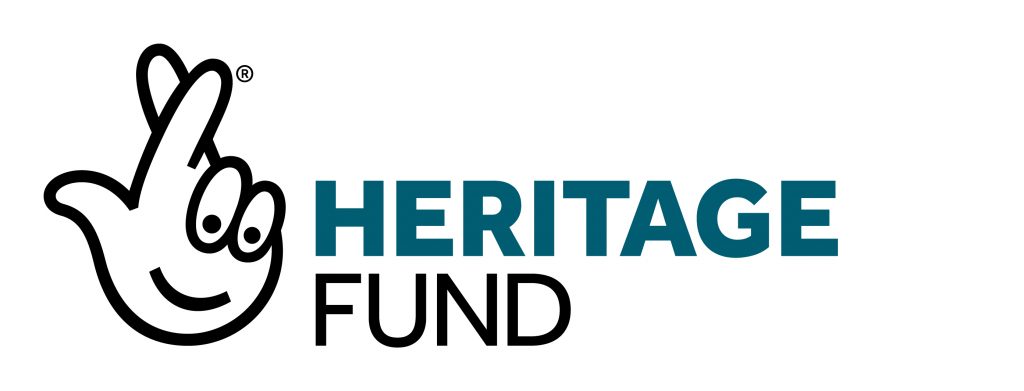Poetic City awarded National Lottery Heritage Fund support
A group of Bristol projects celebrating the city’s poetic past, present and future has been awarded £87,700 funding from the National Lottery Heritage Fund.
A Poetic City is a multi-partner programme of activity coordinated by Bristol Cultural Development Partnership (Bristol Ideas) with participating organisations that include Lyra poetry festival, Glenside Hospital Museum, the Bristol Poetry Institute at University of Bristol, Bristol Libraries, Bristol Culture (Bristol Archives, Bristol Museum and Art Gallery, M Shed), the Royal West of England Academy, St Mary Redcliffe and Destination Bristol. The programme has been inspired by Bristol-born poet Thomas Chatterton who died 250 years ago.
A Poetic City offers the opportunity to link contemporary poetry to its historic roots and rediscover forgotten stories from the past. It will celebrate Bristol’s vibrant and diverse contemporary poetry scene and inspire poets of the future. The programme includes new publications; poetry commissions and readings; mental health workshops; guided walks; lectures; and an exhibition based upon Henry Wallis’ famous painting depicting Chatterton’s death.
‘Despite his accolade by some as the ‘Father of Romantic Poetry’, and the centuries of fascination that he’s held for poets, artists and musicians, Chatterton is largely unknown in his home city. This programme brings to light the city’s links to such an iconic literary figure, as well as building on existing knowledge of his life and times and exploring further his enduring legacy. This includes looking at the significance of his influence upon the Romantics, many of whom worked in and visited Bristol, and subsequent generations of artists. His story also raises more general themes to examine including artistic credulity and credibility; the role of the fake in art; young artists; arts and mental health; on-going barriers to obtaining access to culture in the city; the nature of celebrity; the resurrection of the Gothic; and the nurturing of creativity. We are indebted to National Lottery players and The National Lottery Heritage Fund for their support.’ – Andrew Kelly, Director, Bristol Cultural Development Partnership
The project will run throughout the year, kicking off at Bristol’s Lyra poetry festival in March. Lyra will bring outstanding UK poets to a variety of locations across Bristol, introduce new audiences to live poetry and encourage those interested in poetry to visit the city. It will include commissions, readings, a poetry slam, panel discussions, a poetry film screening and masterclasses.
‘Chatterton’s heritage as a young talented poet reflects the strength of poetic talent in contemporary Bristol. Lyra, The Bristol Poetry Festival, is so excited to be playing a key role in this project and we are delighted to be able to give the opportunity to twelve UK poets to respond sensitively to his life and death.’ – Lucy English and Danny Pandolfi, Lyra Poetry Festival
Thomas Chatterton was born on 20 November 1752 at the schoolmaster’s house of Pile Street School, Bristol where his father had taught. Aged ten, he joined two of the city’s circulating libraries and became a keen and wide-ranging reader. A favourite reading spot was by the Canynges’ tomb in St Mary Redcliffe.
‘The church is currently making plans to improve its own visitor experience, part of which will be to tell the story of Chatterton more effectively, establishing the important links between it and the formative years of ‘the boy poet’. We are, therefore, very pleased to have been asked to become a partner for A Poetic City and are excited by the potential for improving interpretation in the church and hosting a writer in residence, close to the room that fired the young Chatterton’s imagination.’ – The Revd Dan Tyndall, St Mary Redcliffe
Chatterton died at his lodgings on Brooke Street, London on 24 August 1770. To some extent it could be argued that Chatterton’s lasting fame is dependent on his early death, as depicted in Henry Wallis’ painting ‘The Death of Chatterton’ (1856), now in the collection of Tate Britain. A version of this painting will be displayed in Bristol at some point during 2020. It was long supposed that Chatterton’s death was a deliberate act of suicide and, despite the now generally accepted evidence that it was accidental, the lingering myth is of Chatterton being a doomed and anguished young Romantic artist.
Linked to this perception, as well as looking to the past, A Poetic City will focus on today’s young people and mental health and the role of the arts.
‘We are pleased to be part of the A Poetic City partnership bid to mark 250 years since the death of Bristol-born poet Thomas Chatterton. We are looking forward to delivering an aspect of the project looking at arts and mental health, using our unique historic collection from Bristol psychiatric hospitals and our experience in using both heritage and art to widen debate about mental illness.’ – Stella Man, Glenside Hospital Museum
The whole programme of activity has been awarded £87,700 raised through the National Lottery.
‘Thanks to money raised by National Lottery players, we are pleased to support this project which, through the story of Thomas Chatterton, will explore Bristol’s poetic heritage and inspire new generations to look at the city’s history and future from a new and creative perspective.’ – Stuart McLeod, Director London & South at the National Lottery Heritage Fund
